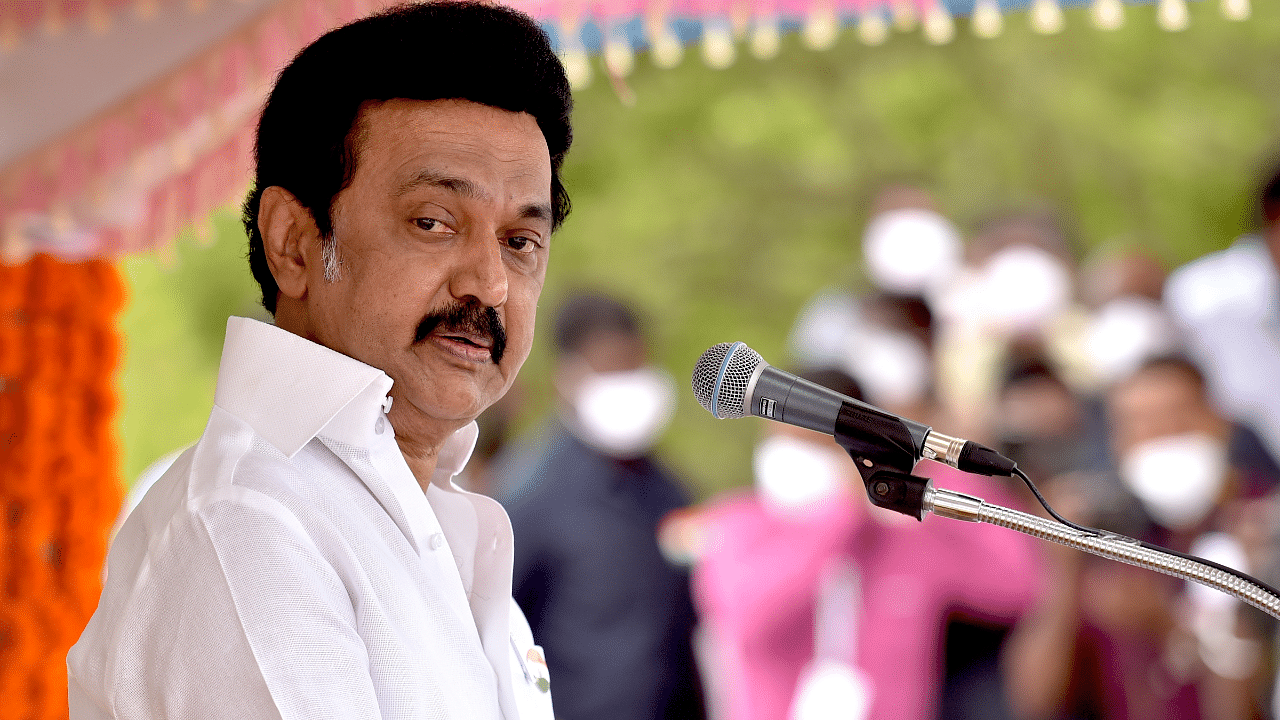
Calling the Parliamentary Committee on Official Language’s recommendation that Hindi should replace English as medium of instruction in central government institutes “divisive in nature”, Tamil Nadu Chief Minister M K Stalin, on Monday, unequivocally told the Union government not to “force another language war” by imposing Hindi.
Taking strong exception to the recommendations of the report, submitted to President Droupadi Murmu by the committee headed by Union Home Minister Amit Shah, Stalin said it is “practically impossible” to mandate a “common language in India”.
“If it is done, it will be akin to stating that only Hindi speakers are the rightful citizens of India and speakers of other languages are second-class citizens,” the Chief Minister said in a four-page statement.
In the strongly worded communication, Stalin reminded the Bharatiya Janata Party-led Union government that the country’s character is “Unity in Diversity”, and hence all 22 languages in the Eighth Schedule to Constitution must be treated equally and are entitled to equal rights.
“I warn to not take a stance that is against the principle stated above. Do not force another language war by imposing Hindi. I appeal to the Union govt led by Hon'ble Prime Minister of India to give up their attempts, to make Hindi mandatory and uphold the unity of India instead,” Stalin wrote.
The Dravida Munnetra Kazhagam president said it is against the spirit of the Constitution to provide “undue, and unfair” advantage to Hindi, and discriminate against other Indian languages while raising “Bharat Mata ki Jai” as a political slogan in Parliament.
Stalin—DMK was at the forefront of the anti-Hindi agitation in the 1960s that forced the then Congress government at the Centre to introduce English as a link language—said everyone should strive to make all languages as the official languages of the Union government.
He had reminded Shah in September that the country is still “India, and not Hindia” when the Home Minister said Hindi unites the whole nation as an official language.
A state that has opposed imposition of Hindi for long, Tamil Nadu follows a two-language policy since the 1960s after the Dravidian parties began to rule. Successive governments have opposed attempts by various Union governments to enforce Hindi.
In his statement, Stalin said some of the recommendations made by the committee endanger the integrity of the Indian Union, and accused the BJP-led Union government of continuously attempting to “impose Hindi with utter disregard to the Constitution.”
Referring to reports that the committee has recommended that English be replaced by Hindi as the medium of instruction in all central institutions, Stalin said they were divisive in nature.
“…where does the need arise for Union Home Minister Amit Shah-led committee to recommend that Hindi be made the common language of India? Why is it recommended to discontinue English language question papers in the Union recruitment examinations to give preference for Hindi?
Tamil Nadu has been at the forefront of opposing imposition of Hindi since the 1960s and had led vociferous protests for years together in the state on the issue. It backed off only after the then Prime Minister Jawaharlal Nehru had in 1962 promised to continue with English as a “link language.”
It was the DMK’s steadfast opposition to Hindi that catapulted the party to St. Fort George, the seat of Tamil Nadu government, by defeating the Congress in 1967.